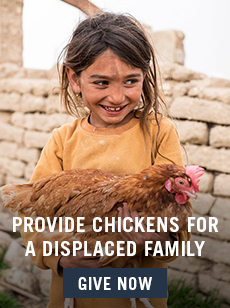
For millions of immigrants in America, a sense of belonging and successfully handling their dual cultural identity is one of the most difficult and challenging of tasks. On the one hand, your heart is tied back to a land that was once your home—as is the case with my parents—or at least a place that feels a lot like home—as is the case with my siblings and me.
Yet no matter how many times we go back there or insist that we want to spend the rest of our days here, there never seems to be a perfect fit. There moved right past my parents and the memories they could have made had they not been forced to leave thirty years ago, and here feels much more familiar.
As a result, we’re stuck between here and there, never completely belonging anywhere.
But perhaps the beauty in the limbo that so many immigrant families find themselves in is that they are able to understand and exist in both places at once.
And perhaps that’s where the secret to truly co-existing beside one another lies as well.

There are immigrants who have walked in our shoes, but there are plenty more back there—in Iraq—who, like my parents, were forced to leave and if they survived were likely to be internally displaced. And that’s where so much of the current resentment lies. It was never truly an ‘us’ vs. ‘them’ mentality in the sense that entire groups of people became alienated from one another. No matter how bad things became in Iraq, there was always a recognition that the majority of its citizens were good people.
Now, many wonder if the country and its people—in light of recent political developments—will ever live up to the potential that so many of its own politicians boast about and so many in the West had initially hoped for.

The key lies not in government policies, per se—which I yield, can at times favor one group over another and further disenfranchise other groups who already don’t feel welcome in the political system—but in all-natural and real human connections.
When people can put a face on families affected by violence, when a doctor from a different faith or ethnicity saves a child’s life, when a Muslim breaks bread with a Christian who’s just as Iraqi as anyone else, the concept of “preemptive strikes” and bombings will become just as foreign and distant a concept as they were all those years ago. Then “preemptive love” and a true sense of commitment to the success and prosperity of the Iraqi state for the sake of its people will begin to emerge.
No more will bureaucrats, insurgencies, or fringe groups attempt to dominate the hearts and minds of the people as much as they have in the past because the people, like my parents, will come to learn the importance of existing in the now.
They’ll learn that yes, you may have been displaced and you may have lost loved ones like so many innocent Iraqis have, but our humanity and our hopes for a better future must transcend the easy way out which often involves blaming an entire people or religious group for why things are currently the way they are.

Most immigrants face the challenge of simply reconciling their ethnic identities with their American ones, but families who hail from conflict zones—both those who had an opportunity to escape and those who were forced to stay behind—face the added difficulty of not only staying true to the identity that various groups have tried to wipe out, but also of keeping the anger and sadness in their hearts from ultimately skewing how they view “the other.” That of course can only happen with social projects and movements that focus on bringing different groups together so that individuals can begin to put a face on “that religion” or “that ethnic group.”
Eventually, they’ll come to find—as we all eventually must come to find as human beings—that religion, ethnic identity, the types of clothes a person wears, or the color they choose to dye their hair quickly falls away once that connection is made and “that” person becomes a friend.
